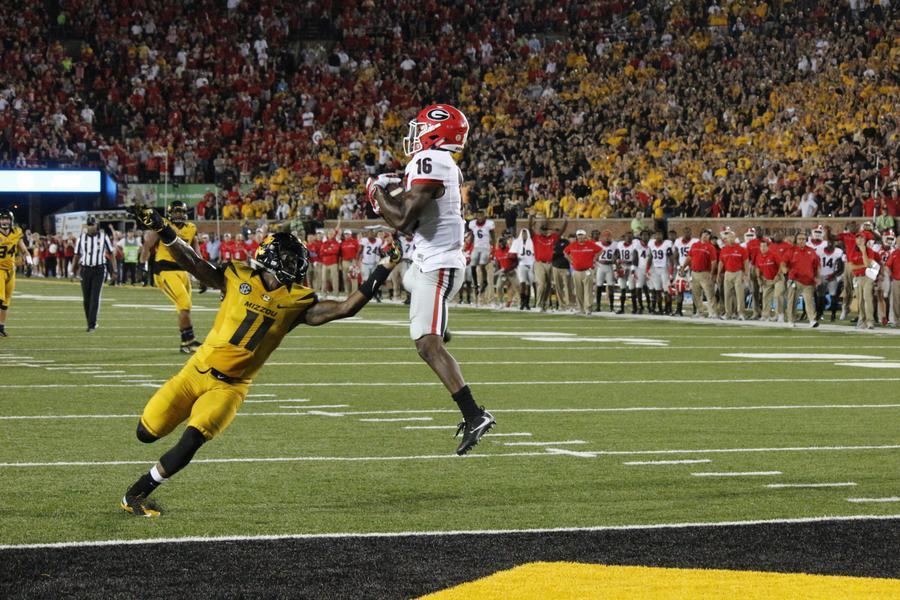
Missouri will be able to score points this season with its returning offensive cast, but the unknown for the Tigers will be their defense.
Missouri’s defensive performance was a Dr. Jekyll and Mr. Hyde act in the two halves of the regular season. The Tigers let up an abysmal 42 points per game in their first six games before cutting that total in half and allowing an average of 21 points per game during their six-game win streak to end the regular season.
In Atlanta, opposing players talked about the Missouri defense and described last year’s weaknesses on that side of the ball.
Georgia receiver Terry Godwin started the day and said the Bulldogs’ ability to run the ball last year set up the rest of their offense in last year’s slow-developing blowout victory in Athens, Georgia.
“We came with the Georgia downhill hard-nosed football that we know we can be,” Godwin said. “Once we established the run game that opened up the passing game.”
The run defense proved to be a catalyst for Missouri to be successful on the defensive side of the ball. It allowed 139 rushing yards or more in each of the first six games, including that 53-28 loss to Georgia when the Bulldogs ran for 370 yards and four touchdowns.
After the run defense hit rock bottom in the Georgia game, the Tigers turned a corner and allowed only one team to eclipse that 139-yard rushing mark the rest of the year.
They gave up an average of 104 rushing yards per contest during that stretch.
The defensive improvement was the most noticeable change spearheading, although Missouri benefited from a softer second-half schedule; it didn’t beat a single FBS team with more than five wins.
Missouri was able to face Tennessee, Arkansas and Florida either right before or right after the coaches were booted from their respective schools. Missouri took advantage of interim coach Randy Shannon with a 45-16 win at home versus Florida.
Florida offensive lineman Martez Ivey thought there were opportunities for the Gator offense, but said the program was in disarray at that point in the season and that hurt their chances.
“I remember we had big plays there the whole game,” Ivey said. “If you look back at the film the plays were there but we just wouldn’t match up to a linebacker or whatever and miss little things. What happened last year trickled down through the whole team with the suspensions and the coaching change so everybody wasn’t in the right place.”
The second half surge for the defense is no doubt promising, but it remains to be seen if Missouri can replicate that success — well, relative success — against the top teams in the division.
For Missouri to reach beyond 21 PPG allowed, its defensive line will need to anchor the inside to be able to keep rushing offenses like Georgia at bay.
Terry Beckner Jr. will be the leader on the defensive line and will have to be able to plug holes in the run game with the returning linebacking core of senior Terez Hall and junior Cale Garrett. Closing those running lanes will help an inexperienced secondary who will be responsible for stopping opponent’s passing attack.
Arkansas guard Hjalte Froholdt praised the quickness and movement of the defensive line, but pointed to the run lanes the Razorbacks were able to create in their 48-45 loss to Missouri in Fayetteville, Arkansas.
“[The defensive line is] really quick; they do a lot of movement on the defensive line and they’re very good with their hands,” Froholdt said. “Offensively we had a pretty good game. We managed to create good run lanes and we had a good pass attack as well.”
Overall, Froholdt still had praise for the Missouri defense.
“They’re a really good defense and they’ll make sure to slap you in the face if you give them a chance,” Froholdt said. “They’ll take you over in a second if you let them.”
_Edited by Bennett Durando | [email protected]_